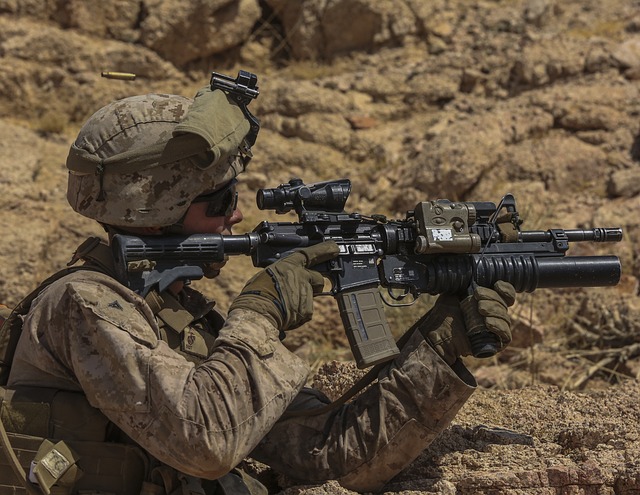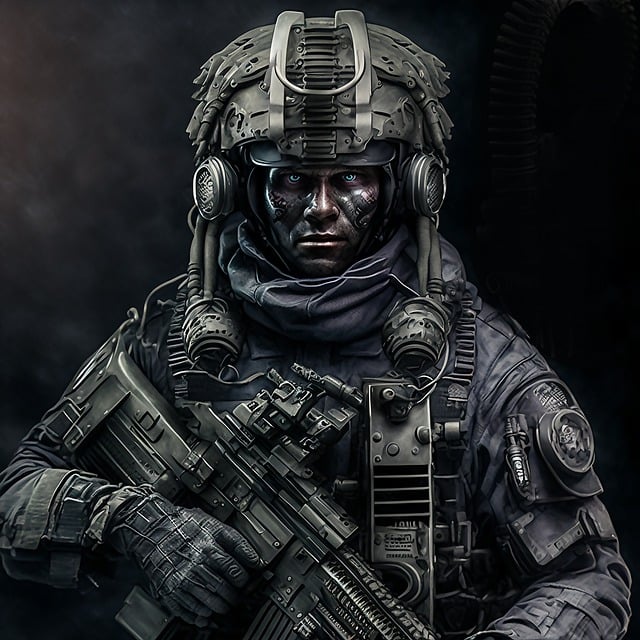The US Army Special Forces (Green Berets) actively contribute to youth education through strategic partnerships, offering specialized training programs focusing on leadership, teamwork, discipline, and resilience. Utilizing immersive simulations and problem-based learning, they prepare elite soldiers for diverse challenges. These programs enhance problem-solving, critical thinking, and mental toughness, fostering resilience, adaptability, and strong work ethics in young individuals. Integrating Special Forces' values and training methods into mainstream education enhances academic performance, encourages cultural awareness, and prepares students for life's difficulties in an interconnected world.
The US Army Special Forces, known for their exceptional training and global reach, have quietly made significant contributions to youth education. This article explores the unique role of Special Forces in empowering young people through specialized teaching methods. We delve into the benefits of their rigorous curriculum, examining how these skills can enhance mainstream educational programs. By integrating Special Forces principles, schools can foster discipline, critical thinking, and resilience, ultimately preparing students for success in a dynamic world.
- The Role of US Army Special Forces in Youth Education
- Unique Teaching Methods Employed by Special Forces
- Benefits of Special Forces Training for Young People
- Integrating Special Forces Curriculum into Mainstream Educational Programs
The Role of US Army Special Forces in Youth Education

The US Army Special Forces, renowned for their exceptional operational capabilities, also play a significant role in youth education, contributing to the development and empowerment of young individuals. Through various partnerships with educational institutions and community organizations, they offer specialized training programs that focus on leadership, teamwork, discipline, and resilience—core values essential for personal growth. These programs often take a hands-on approach, incorporating real-world scenarios and challenges designed to foster problem-solving skills and encourage critical thinking.
Special Forces veterans, with their diverse skill sets and unique perspectives gained from global operations, bring a wealth of experience to the educational landscape. They mentor youth, sharing insights on navigating challenging situations, building strong character, and cultivating mental toughness. These interactions not only inspire but also equip young people with tools to succeed in both academic pursuits and future careers, ensuring they are prepared to face the complexities of modern society.
Unique Teaching Methods Employed by Special Forces

The US Army Special Forces, often referred to as the Green Berets, are renowned for their exceptional training and innovative teaching methods. These elite soldiers are trained to operate in diverse and challenging environments, requiring unique pedagogical approaches. Their educational programs emphasize practical skills and mental toughness, preparing them for the rigors of special operations.
One distinctive method employed is immersive training, where trainees experience simulated combat scenarios, fostering adaptability and quick decision-making. They also utilize problem-based learning, encouraging critical thinking and creative solutions to complex issues. The Special Forces’ approach focuses on individual development, cultivating resilience and leadership qualities essential for their line of work.
Benefits of Special Forces Training for Young People

Incorporating elements of US Army Special Forces training into educational programs for youth offers a multitude of benefits that go beyond typical physical fitness. This rigorous regimen instills discipline, fosters mental toughness, and cultivates a strong work ethic—essential qualities for personal growth and future success. By participating in simulated missions and challenging scenarios, young individuals learn to think critically, make quick decisions under pressure, and collaborate effectively as part of a diverse team.
Such training also helps in building resilience and adaptability, crucial skills in navigating today’s fast-paced and ever-changing world. The structured environment promotes time management, organization, and leadership abilities, allowing youth to develop a sense of purpose and self-confidence. Moreover, the camaraderie forged during Special Forces exercises can create lasting bonds and a supportive network that encourages continued learning and mutual assistance.
Integrating Special Forces Curriculum into Mainstream Educational Programs

Integrating the rigorous training and values of the US Army Special Forces into mainstream educational programs offers a unique opportunity for youth development. This approach leverages the discipline, leadership, and problem-solving skills instilled in Special Forces soldiers to enhance academic performance and foster a sense of purpose among students. By incorporating elements of their curriculum—such as survival techniques, tactical thinking, and physical conditioning—into regular classroom settings, educators can create an engaging and impactful learning environment.
Mainstream schools can benefit from the Special Forces’ emphasis on mental toughness, resilience, and teamwork. These attributes are not only valuable in academic pursuits but also prepare young individuals for the challenges they may face later in life. Moreover, exposing students to the ethical framework and operational strategies of US Army Special Forces can encourage critical thinking, cultural awareness, and a global perspective—skills that are increasingly important in today’s interconnected world.
The integration of US Army Special Forces educational methodologies into mainstream youth programs offers a transformative opportunity. By adopting their unique teaching approaches, we can enhance learning experiences and empower young individuals with valuable skills. The benefits of Special Forces training, including discipline, resilience, and strategic thinking, are undeniable. As we navigate the challenges of modern education, leveraging these specialized techniques could be the key to fostering a generation of well-rounded, capable, and confident youth.
